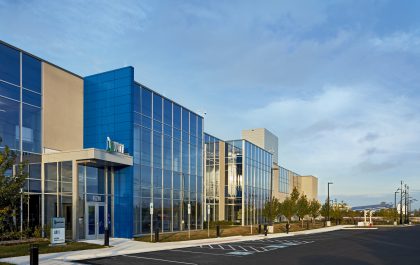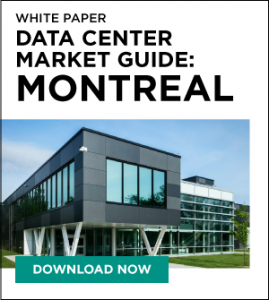Are you thinking about your next data center requirement? Choosing a provider is not as simple as it once was, with so many different factors to consider, from location to amenities, to connectivity. As we think about how to provide the best services and help customers choose a provider, this post will give you some direction on how to choose the right data center.
What services are most important to you?
As you think about your data center needs, it’s important to first think about what services are essential to you. If you have wildly varying needs that fluctuate or need lots of smaller deployments in multiple locations with latency concerns, then you might need to focus on cloud services or possibly retail colocation. If your focus is on larger scale deployments that you plan to deploy and manage with your teams, but don’t want the capital cost of building your own data center, then your focus should be on wholesale data center providers. For this discussion, we will focus as we think about the different considerations when choosing a wholesale data center provider.
Location, location, location
Choosing where to locate your data center is often seen as the most straightforward part of the equation—but often other considerations may not be as obvious. The first and most obvious question is to think about your customers’ locations. How critical are your applications to latency? What other hubs do you need to be connected? Vantage has had great success in Silicon Valley because so many companies have significant connectivity hubs in the region, so it makes sense for our customers to continue to grow their footprint in this region.
Beyond just latency and connectivity, however, is proximity to people and access to the data center. Often, teams forget how crucial it is to have easy and convenient access. While you might find cheaper options in remote locations, if your teams need to be there and have access to the data center on a regular basis, then those remote locations may not be worth the cost savings. Having a data center close to your offices and teams can have real benefits—both regarding employees’ quality of life as well as real cost savings in travel and avoiding having remote employees. Silicon Valley continues to be a hub in many ways given the concentration of talent, as well as the density in the data center world.
That said, there are always alternative markets to consider when you think about adjacency in the data center space. Many new markets on the west coast continue to grow and offer potential alternatives to Silicon Valley. Sacramento, Hillsborough, Phoenix and even Reno are continuing to push and promote as alternatives to Silicon Valley. Each has different benefits as well as challenges concerning access, connectivity and power options. While power is often cheaper, it may not be as readily available or as reliable as you might expect. You also have to be conscious of traveling to sites that may not be near your teams or having to hire teams in new regions to support your data center footprints. That’s not to say there is no value in these new markets, just that they can create new factors to consider in making a decision.
Do you have the right team?
As you look specifically at data center providers, you must spend time looking at the team that is there to support you once you deploy with a provider. In an outsourced model, the data center provider manages the infrastructure for you. They are responsible for ensuring continuity of power distribution, for managing the cooling and maintaining the right environment, as well as providing and managing most areas of security and access for you. Before making any decisions, it’s essential to meet these teams and ensure they have the skills and knowledge to keep things running smoothly.
Understanding the maintenance and testing procedures is a vital part of this investigation—while most equipment is similar across the industry, its maintenance and management can vary dramatically. It’s important to spend time understanding when equipment needs service when batteries need replacement, and how often systems need testing. All these factors help define the skill of the team and provide insight into your potential experience with them.
Along these same lines, it’s also important to understand for whom these teams work. Many data center providers outsource this work to a third-party company who manages the data center for them. While these teams might be skilled, it can also create an additional layer of management and complication for you to manage through. This might be fine during normal operations, what happens in a time of crisis? Which team do you call and who ultimately is responsible? In our humble view, customers are better served by operations teams that are part of one company and not outsourced to another.
This model provides a single team that owns all aspects of the data center and has a direct sense of ownership to ensure that customers are well served and happy. Sometimes outsourced teams may feel conflicted because they have to serve customers while managing to leadership teams that are not on the ground every day and do not benefit nor focus on the end customer satisfaction.
The data center environment: home sweet home
As most people talk about data centers and think about the physical structures, the most common areas of discussion start with power and electrical, mechanical infrastructure and cooling, and security in and around the building. These are all critical factors to consider in every data center—but is there a significant differentiation in those areas among most data center providers?
While you should ensure these areas are all up to par, there may not be a significant advantage from one provider to another in this area. What many often overlook is the other features and details about the data center that have more impact on your team on a day to day basis. Those areas all revolve around the working conditions and environment for your teams.
In the wholesale data center world, customers run large footprints that include a high number of racks all loaded with gear. Most have dedicated teams that work daily to manage the equipment and ensure that all systems and applications are functioning correctly. This means that they are in the data center every day—for some, it’s effectively their permanent office. Given this fact, having quality office space to work in (not just a table on the data center floor) can be a big deal for your teams.
Historically, not all data center providers have given much thought to providing space and comforts to their customers beyond the data center floor. This is indeed changing with newer data centers focused on providing premium office space, staging areas and common areas that provide a fun space for customers to relax and unwind. At Vantage, we focus on creating fun environments for all customers that include gaming, TVs and other amenities that provide a space and opportunity for all customers to relax and take a break—rather than having to sit next to servers and listen to the endless noise all day long!
When you think about the data center environment, you also have to think about the future—specifically, do you have room to grow? Amenities and space are essential to creating a comfortable environment for workers, but is that important in the long-term if you are going to outgrow the space?
Many data center providers build a building wherever they can, and when its full they find more land anywhere and build more. Other providers (Vantage being a leader in this area!) focus on building campus environments that have a long-term capacity for growth and expansion within a single location. This is important for your teams as they can plan for long-term growth within a single location, and not have to worry about bouncing around between multiple sites.
Which factors are most important for you?
These are just a few of the factors to consider when making a data center decision. Which areas are most important for you depends solely on how you are planning to design and build your data center footprint. Hopefully, this helps you think about what might be valuable beyond the standard areas of space, power, and cooling, and think about how to choose the right location, the right provider, and the right team for you.



